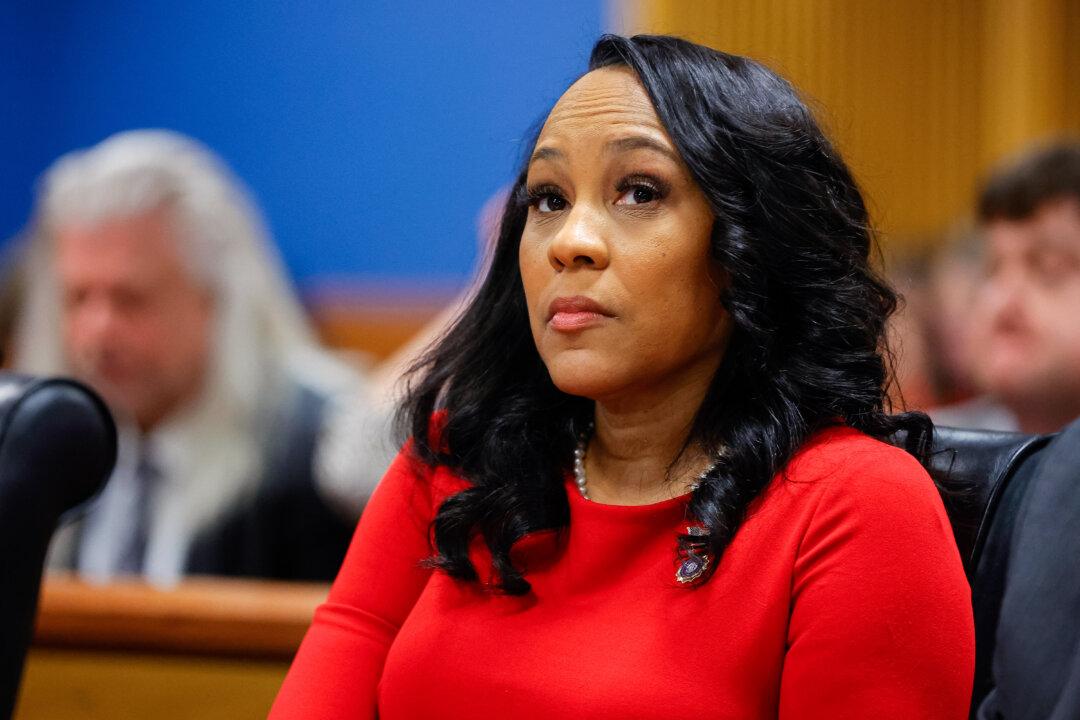While the judge in former President Donald Trump’s Georgia case allowed District Attorney Fani Willis to remain on the case, he criticized her for making a racially charged speech in mid-January in which she invoked the “race card.”
The Jan. 14 speech was given by Ms. Willis just days after allegations surfaced that she engaged in an improper relationship with her special counsel at an Atlanta church. Ms. Willis, who is black, appeared to suggest that court motions filed against her were based on a racial animus against her, while providing no evidence.





